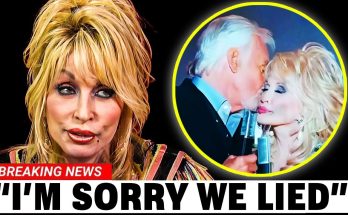J.K. Rowling, the acclaimed author of the Harry Potter series, has become one of the most polarizing figures in contemporary discourse. From creating one of the most beloved fantasy worlds to standing firm against what she views as the excesses of “woke culture,” Rowling’s journey has been a whirlwind of creativity, criticism, and resilience.

The Backlash Against Woke Culture
Rowling’s stance against aspects of woke culture has drawn significant attention, both supportive and critical. Her book sales skyrocketed from $7 million to an astonishing $1.9 billion in a year—a testament to her enduring appeal even amid heated debates. Critics argue that her views are divisive, but supporters praise her for standing firm in the face of backlash.
Her transition from being the magical creator of Hogwarts to a focal point of cultural conflict began when she openly criticized Scotland’s controversial hate crime laws. These laws, designed to protect transgender individuals, were deemed by Rowling as undermining the rights and safety of biological women. She argued these measures were a “disaster waiting to happen,” and the backlash on social media was immediate and intense.
Critiques and Controversies
One of the more dramatic moments in Rowling’s journey came when she was swept up in a bizarre lawsuit during the 2024 Paris Olympics. Boxer Amane Kef filed a cyberbullying case against Rowling, Elon Musk, and Donald Trump, alleging harassment over debates surrounding gender eligibility in women’s sports. Despite the legal pressures and accusations of online harassment, Rowling stood firm, emphasizing her belief in fairness and safety for women in competitive sports.
In her view, allowing biological men to compete against women undermines decades of progress in women’s athletics. Rowling’s pointed criticisms of such practices, including specific comments about incidents at the Paris Olympics, further solidified her reputation as a vocal advocate for women’s rights.
Hollywood and Betrayals
Rowling’s clashes weren’t limited to activists and legal battles; even stars of the Harry Potter franchise distanced themselves from her. Daniel Radcliffe, Emma Watson, and Eddie Redmayne, whose careers were catapulted by Rowling’s work, publicly sided with activists, advocating for transgender rights. Radcliffe declared, “Trans women are women,” while Watson posted messages of solidarity with the transgender community.
In response, Rowling criticized her former stars for backing movements she believes undermine women’s rights. This public fallout added to the already intense scrutiny she faced from the media and her detractors.
Victories in the Gender Debate
Despite enduring a barrage of criticism, Rowling has also seen vindication. Her warnings about the dangers of transitioning minors gained traction as medical communities began reassessing protocols for gender dysphoria treatment. In the UK, the National Health Service (NHS) started pulling back on puberty blockers and cross-sex hormones for minors. Rowling’s supporters hailed this development as validation of her concerns, emphasizing that her advocacy was rooted in protecting vulnerable children.
Resilience and Defiance
Even as Rowling faced lawsuits, celebrity betrayals, and online harassment, she never backed down. When activists attempted to have her arrested under hate crime laws for her comments on social media, Rowling dared authorities to take action, asserting her commitment to free speech and women’s rights.
Her resilience has made her a symbol of defiance against cancel culture. While critics label her a transphobe, Rowling has remained steadfast, asserting that her stance is not about hatred but about fairness and safeguarding hard-won rights.
The Legacy of J.K. Rowling
Rowling’s journey is a testament to the power of standing firm in one’s beliefs, even when faced with overwhelming opposition. Whether viewed as a warrior against woke culture or as a controversial figure in the gender debate, her influence remains undeniable. As the conversations around free speech, gender, and societal norms evolve, Rowling continues to be at the forefront, unyielding in her convictions.
What do you think of Rowling’s impact? Is she a champion of free speech or a divisive figure in today’s cultural battles? Let us know in the comments below.


